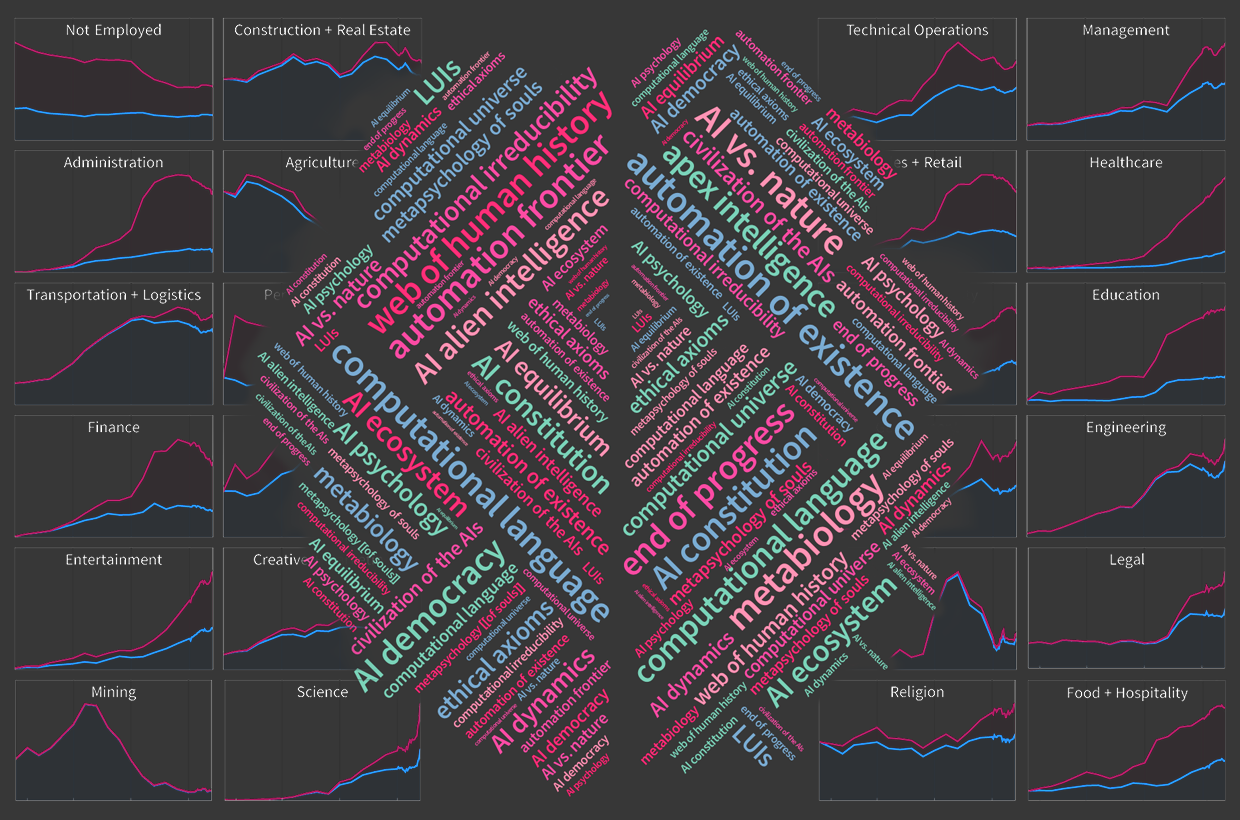Institute Output

Quantum Gravity and Computation: Information, Pregeometry, and Digital Physics
Dean Rickles, Xerxes D. Arsiwalla, Hatem Elshatlawy
This volume argues that concepts from the theory of computation—including information theory, formal languages, and discrete structures—might provide novel paths towards a solution to the problem of quantum gravity. By combining elements of physics with computer science and mathematics, the volume proposes to transform the foundations of spacetime physics and bring it into the digital age.

Human Language and Machine Language
The explosion of large language models means that we are all suddenly awash in machine-generated language, spoken, written and even sung. There are many advantages to the artificial intelligence produced like this, and many disadvantages too: it remains to be seen what the eventual outcome will be. But there is one particular idea that keeps bubbling up to the surface: that AI is going to decide to kill us all. This, I suggest, is based on a misunderstanding of the nature of language.

What If We Had Bigger Brains? Imagining Minds beyond Ours
Stephen Wolfram
We humans have perhaps 100 billion neurons in our brains. But what if we had many more? Or what if the AIs we built effectively had many more? What kinds of things might then become possible? At 100 billion neurons, we know, for example, that compositional language of the kind we humans use is possible. At the 100 million or so neurons of a cat, it doesn’t seem to be. But what would become possible with 100 trillion neurons? And is it even something we could imagine understanding?

Generative AI Space and the Mental Imagery of Alien Minds
Stephen Wolfram
How do alien minds perceive the world? It’s an old and oft-debated question in philosophy. And it now turns out to also be a question that rises to prominence in connection with the concept of the ruliad that’s emerged from our Wolfram Physics Project.

Will AIs Take All Our Jobs and End Human History—or Not? Well, It’s Complicated…
Stephen Wolfram
Untangling this issue will be at the heart of questions about how we fit into the AI future. And in what follows we’ll see over and over again that what might at first essentially seem like practical matters of technology quickly get enmeshed with deep questions of science and philosophy.

How Inevitable Is the Concept of Numbers?
Stephen Wolfram
The aliens arrive in a starship. Surely, one might think, to have all that technology they must have the idea of numbers. Or maybe one finds an uncontacted tribe deep in the jungle. Surely they too must have the idea of numbers. To us numbers seem so natural—and “obvious”—that it’s hard to imagine everyone wouldn’t have them. But if one digs a little deeper, it’s not so clear.

Why Does the Universe Exist? Some Perspectives from Our Physics Project
Stephen Wolfram
Why does the universe exist? Why is there something rather than nothing? These are old and fundamental questions that one might think would be firmly outside the realm of science. But to my surprise I’ve recently realized that our Physics Project may shed light on them, and perhaps even show us the way to answers.

What Is Consciousness? Some New Perspectives from Our Physics Project
Stephen Wolfram
Consciousness is a topic that’s been discussed and debated for centuries. But the surprise to me is that with what we’ve learned from exploring the computational universe and especially from our recent Physics Project it seems there may be new perspectives to be had, which most significantly seem to have the potential to connect questions about consciousness to concrete, formal scientific ideas.
